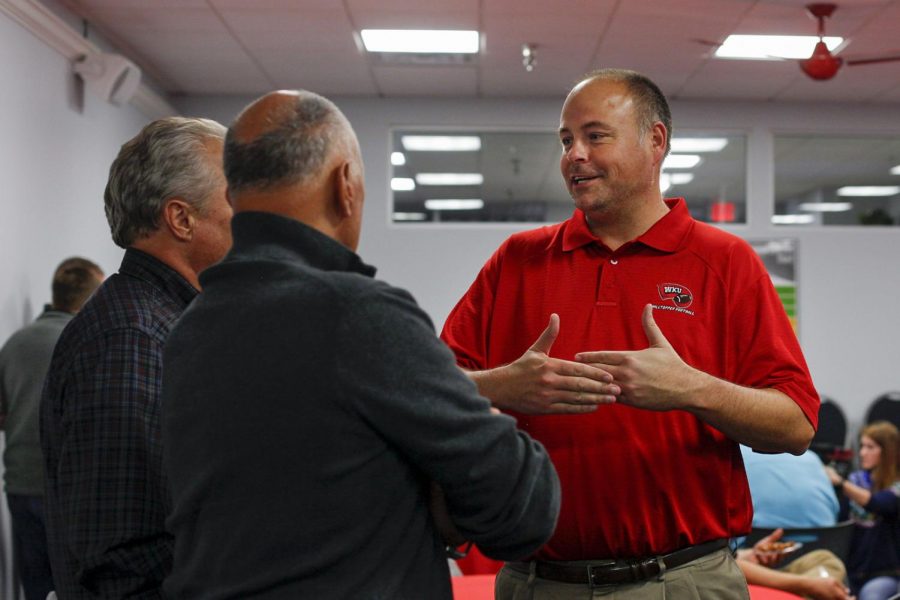WKU professor may help choose the president
November 9, 2016
As students and residents of Bowling Green come out to the polls to vote for their favorite candidate, they are actually voting for or against one of WKU’s professors.
Scott Lasley, political science professor and chair of the Warren County Republican Party, is also one of Kentucky’s electors in the electoral college. When Kentucky voters make their decision for Hillary Clinton or Donald Trump, they are actually deciding on which slate of electors will decide how the state’s eight electoral votes are cast.
This is the first time Lasley has been selected as an elector, a position he says is once in a lifetime.
“It’s an honor you usually only get once, if you’re lucky,” Lasley said.
Lasley has been a professor at WKU for 15 years and has been a chair of the Warren County Republican party since 2010. He said the local chapter hasn’t changed much in the six years he has been chair but he has seen growth in numbers and enthusiasm.
“We continue to grow in terms of Republican’s registered and we’ve started to have candidates run against Jody Richards, which is good for elections,” Lasley said, referring to the incumbent Democrat Speaker Pro Tempore in the House who has represented Kentucky’s 20th District since 1976. “It’s hard to have a functioning democracy when candidates have been running unopposed.”
Previously, Lasley has been an advisor for College Republicans and said his parents were campaign managers for state representative candidates in Minnesota.
He was selected as an elector at a district convention where the nominating committee voted on candidates for their slate of electors. Lasley said a candidate was selected for each congressional district and two candidates were voted on to represent state-wide.
Electors in Kentucky are supposed to vote according to the popular vote of the state but there are no laws aside from a fine to prevent an elector from voting otherwise, known as a “faithless elector.” Lasley said he believed the electors would vote according to their state, but there are always chances for surprises, with reports of electors like Robert Satiacum of Washington claiming he wouldn’t vote for Hillary.
If his slate is chosen, Lasley and his fellow electors will meet with the rest of the electoral college to cast their votes for president on Dec. 19, when the president will officially be elected.
READ MORE:
Voter shares disappointment with election
WKU employee encourages others to vote
Air Force veteran says Trump is ‘lesser of two evils’
High school teacher says her students are ‘afraid’ of Trump
Married couple shares concerns over health care, Supreme Court




















![Students cheer for Senator at Large Jaden Marshall after being announced as the Intercultural Student Engagement Center Senator for the 24th Senate on Wednesday, April 17 in the Senate Chamber in DSU. Ive done everything in my power, Ive said it 100 times, to be for the students, Marshall said. So, not only to win, but to hear that reaction for me by the other students is just something that shows people actually care about me [and] really support me.](https://wkuherald.com/wp-content/uploads/2024/04/jadenmarshall-600x422.jpg)





